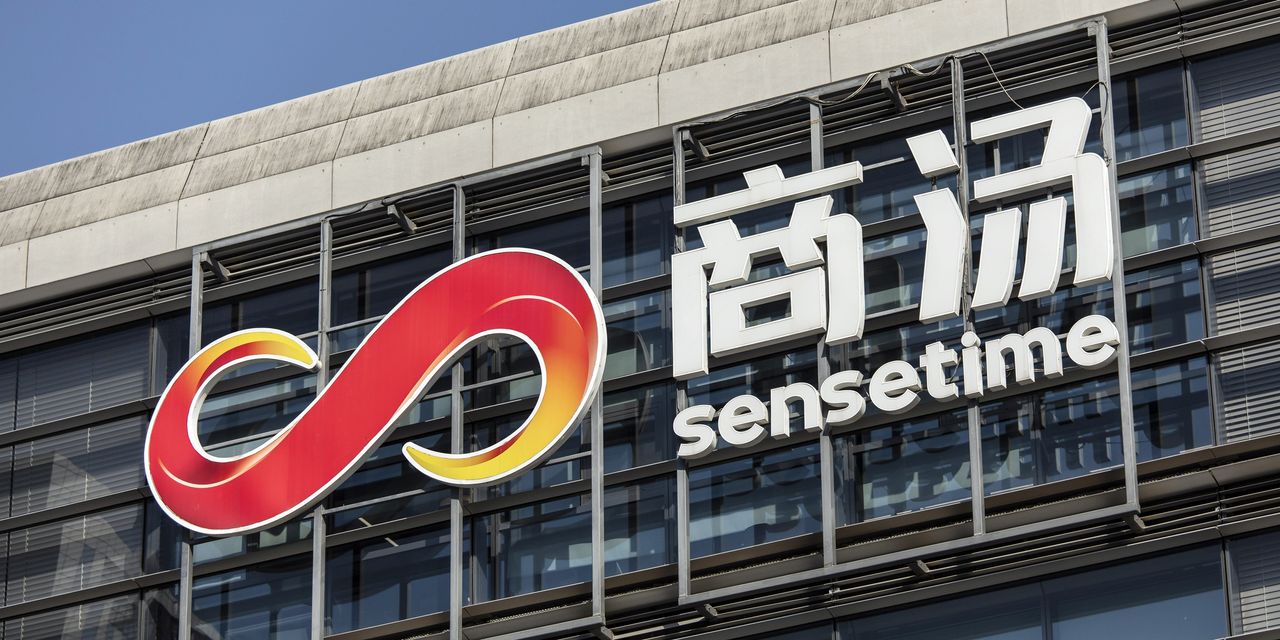
HONG KONG—Shares of SenseTime Group Inc. jumped in their Hong Kong market debut, after the Chinese artificial-intelligence leader completed a $744 million initial public offering that had been delayed by tensions between Washington and Beijing.
SenseTime shares were around 11% above their IPO price at midday in Hong Kong on Thursday, after earlier rising as much as 23%.
The company’s recent stock price of 4.29 Hong Kong dollars, equivalent to 55 U.S. cents, gave seven-year-old SenseTime a market valuation of around $18 billion. The company had sold its shares to the public at HK$3.85 apiece.
SenseTime overcame a hump on its journey to listing in Hong Kong. Days after it first launched what was already a scaled-down IPO, the U.S. government added SenseTime to an investment blacklist that barred Americans from buying shares in the firm.
U.S. authorities alleged that SenseTime’s facial-recognition technology has been used to suppress and assimilate mainly Muslim ethnic minorities in western China. SenseTime disputed the accusation, but postponed its IPO shortly after, saying the delay would help investors consider the potential impact of the U.S. blacklisting.
The company then swiftly relaunched the deal on Dec. 20, adding more Chinese state-backed institutions to support the offering as cornerstone investors. Those cornerstone investors, which included a state-funded investment vehicle called Xuhui Capital, bought 69% of the IPO shares on offer—essentially helping to ensure the sale would be successful.
SenseTime said the retail portion of the IPO was 5.18 times subscribed, while the much larger international offering was 1.5 times subscribed, according to its filings with the Hong Kong bourse. The shares were priced at the low end of a narrow offered range.
Some Chinese individual investors saw the U.S. blacklisting as a badge of honor, saying on social media in recent days that they would buy the stock to show support.
During a virtual listing ceremony Thursday, SenseTime co-founder and Chief Executive Xu Li thanked the wider AI industry and the current “booming era” for tolerating SenseTime’s uniqueness. “Our investors, like us, believe in the revolutionary power of artificial intelligence,” he said.
Hong Kong-incorporated SenseTime, which has units in Beijing, Shanghai and other cities, has yet to turn a profit. The company spent the equivalent of approximately $278 million in research and development in the first half of this year, exceeding the $259 million it recorded in revenue in the same period. It said it plans to use its IPO net proceeds—which come up to around $712 million if underwriters don’t exercise an overallotment option—to expand its artificial-intelligence business.
The company’s customer base is relatively concentrated, which SenseTime listed as a risk factor in the prospectus. The company’s five biggest customers made up nearly 59% of its revenue in the first half of this year. Its largest customer accounted for 23% of the revenue. More than 85% of its revenue in the first half of this year came from mainland China.
Write to Rebecca Feng at [email protected]
Copyright ©2021 Dow Jones & Company, Inc. All Rights Reserved. 87990cbe856818d5eddac44c7b1cdeb8








